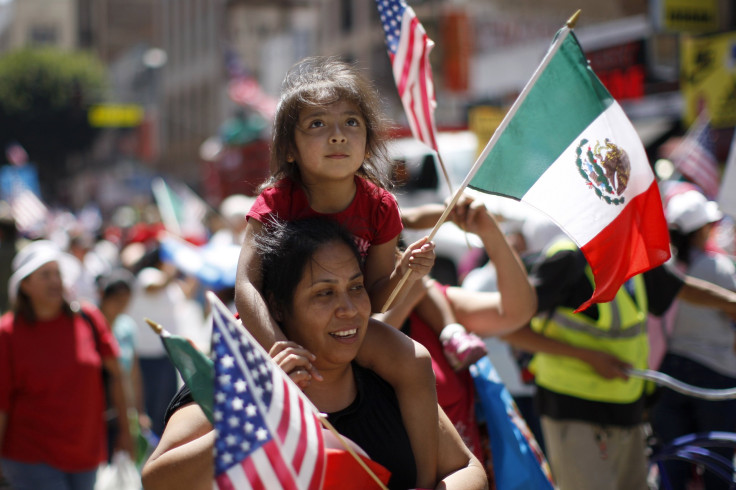Immigration Reform News: Children Shouldn't Get Same Treatment As Parents, Says Goodlatte

Children brought into the United States illegally can stay, but their parents can’t. That’s the position suggested by House Judiciary Committee Chairman Bob Goodlatte, R-Va., who oversees the immigration reform legislation being debated in Congress.
Goodlatte was speaking at a hearing Tuesday afternoon in the Immigration and Border Security Subcommittee concerning the status of children who entered the country illegally. The chairman said those children do not share the culpability of their parents. The hearing stems from a bill Goodlatte is drafting with Majority Leader Eric Cantor, R-Va., which is yet to be introduced.
“I do not believe that parents who made the decision to illegally enter the U.S. while forcing their children to join them should be afforded the same treatment as these kids,” Goodlatte said in an opening statement. “Because let’s be clear -- parents bringing their young children to the U.S. illegally is not something we want to encourage. Not only because it would lead to continued illegal immigration, but also because illegally crossing the border is dangerous.”
There are an estimated 11 million undocumented immigrants currently living in the country. Republicans have yet to decide on a strategy for dealing with the undocumented. And while many are opposed to a pathway to citizenship for those who broke the law, some feel children should be showed compassion because they are “a special protected class.”
That’s how Rep. Trey Gowdy, the subcommittee chairman, believes the issue should be approached. The South Carolina Republican said more than 1.3 million of the undocumented immigrants are children under 18 years of age.
“Children who were brought here haven’t committed a crime,” Gowdy said. “The adults may have, but children have not.”
Gowdy suggested that trying to put all 11 million into the same group would be a deal-breaker for immigration reform in the House. He said such a move would only end up hurting those most vulnerable. It was a clear swipe at the Senate-passed 2013 comprehensive immigration reform bill, which offers a path to citizenship for all of the nation’s undocumented, however long.
Not every Republican is sharing the view toward children. Iowa's Steve King remains concerned over legalization for some. He said it appears lawmakers want to pass a law because the issue is pulling at their hearts.
“It tugs at my heart too,” King said during the hearing. “I think we have to preserve the rule of law so that this country can last into many, many generations, not just our lifetime.”
Additionally, Rep. Raul Labrador, the Idaho Republican who quit the House immigration "Gang of Seven," told his colleagues that the rule of law must come first, followed by the security of America.
“There is no right to citizenship in the United States,” he said. “It’s a privilege provided.” Though immigration reform is a divisive issue among House Republicans, the fact that they are beginning to discuss it is welcome news for Democrats who advocate for citizenship. Rep. Luis Gutierrez, D-Ill., called Tuesday’s hearing a “step in the right direction” because it shows compromise can be reached. Still, he said, “legalizing the DREAMers [chiefly college students] is not enough.”
© Copyright IBTimes 2024. All rights reserved.












